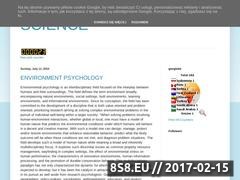Science worldss scienceworldss.blogspot.com
Science!
Science is not merely a collection of facts, concepts, and useful ideas about nature, or even the systematic investigation of nature, although both are common definitions of science. Science is a method of investigating nature--a way of knowing about nature--that discovers reliable knowledge about it. In other words, science is a method of discovering reliable knowledge about nature. There are other methods of discovering and learning knowledge about nature (these other knowledge methods or systems will be discussed below in contradistinction to
Reliable knowledge is knowledge that has a high probability of being true because its veracity has been justified by a reliable method. Reliable knowledge is sometimes called justified true belief, to distinguish reliable knowledge from belief that is false and unjustified or even true but unjustified. Please note that I do not, as some do, make a distinction between belief and knowledge; I think that what one believes is one's knowledge. The important distinction that should be made is whether one's knowledge or beliefs are true and, if true, are justifiably true. Every person has knowledge or beliefs, but not all of each person's knowledge is reliably true and justified. In fact, most individuals believe in things that are untrue or unjustified or both: most people possess a lot of unreliable knowledge and, what's worse, they act on that knowledge! Other ways of knowing, and there are many in addition to science, are not reliable because their discovered knowledge is not justified. Science is a method that allows a person to possess, with the highest degree of certainty possible, reliable knowledge (justified true belief) about nature. The method used to justify scientific knowledge, and thus make it reliable, is called the scientific method.
More about scienceworldss.blogspot.com Website's Comments
Loading the statistics...
- Top
- Sitemap
- Webmasters
- Copyright ©2009-2026 SublimeStar.com Walerian Walawski
